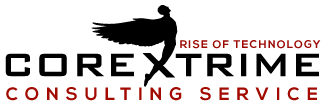C Language Training In Ahmedabad
C Language Classes In Ahmedabad, C Language Training Institute In Ahmedabad
C Training in Ahmedabad offered by Corextrime with 100% practical classes in Ahmedabad. Our C Training primarily focusing on placement for all. We crafted our course syllabus and courses structure which gives basic to advanced level of expertise on C training at the end of C programming course in Ahmedabad. Our C language training courses syllabus will be enough to appear for certification and interviews confidently. We have highly qualified and good experienced tutors for C language classes, C language Training, C language Course, C Programming in Ahmedabad. Our C trainers will help you to build your CV and share their project experience. By doing C training in Ahmedabad with corextrime anyone can become expert if they eagerly learn this technology in short time from c language training centre in Ahmedabad.
We at Corextrime provide C training in Ahmedabad. Our C Training institute in Ahmedabad is perfectly equipped with all the needed facilities. When it comes to C training course fee we are the very lowest bidders in the market and also affordable price for you. We are conducting C class room training, C online training and C corporate training. We assure that we are giving best of our knowledge for every C training in Ahmedabad.
Get Expert Consultation
C Language Training In Ahmedabad
Chapters:
- Absolute basics
- Languages: natural and artificial
- Machine languages
- High-level programming languages
- Obtaining the machine code: compilation process
- Recommended readings
- Your first program
- Variable – why?
- Integer values in real life and in “C”, integer literals
Data types
- Floating point values in real life and in “C”, float literals
- Arithmetic operators
- Priority and binding
- Post- and pre -incrementation and -decrementation
- Operators of type op=
- Char type and ASCII code, char literals
- Equivalence of int and char data
- Comparison operators
- Conditional execution and if keyword
- printf() and scanf() functions: absolute basics
- Flow control
- Conditional execution continued: the “else” branch
- More integer and float types
- Conversions – why?
- Typecast and its operators
- Loops – while, do and for
- Controlling the loop execution – break and continue
- Logical and bitwise operators
Arrays
- Switch: different faces of ‘if’
- Arrays (vectors) – why do you need them?
- Sorting in real life and in a computer memory
- Initiators: a simple way to set an array
- Pointers: another kind of data in “C”
- An address, a reference, a dereference and the sizeof operator
- Simple pointer and pointer to nothing (NULL) & operator
- Pointers arithmetic
- Pointers vs. arrays: different forms of the same phenomenon
- Using strings: basics
- Basic functions dedicated to string manipulation
- Memory management and structures
- The meaning of array indexing
- The usage of pointers: perils and disadvantages
- Void type
- Arrays of arrays and multidimensional arrays
- Memory allocation and deallocation: malloc() and free() functions
- Arrays of pointers vs. multidimensional arrays
- Structures – why?
- Declaring, using and initializing structures
- Pointers to structures and arrays of structures
- Basics of recursive data collections
Functions
- Functions – why?
- How to declare, define and invoke a function
- Variables’ scope, local variables and function parameters
- Pointers, arrays and structures as function parameters
- Function result and return statement
- Void as a parameter, pointer and result
- Parameterzing the main function
- External function and the extern declarator
- Header files and their role
